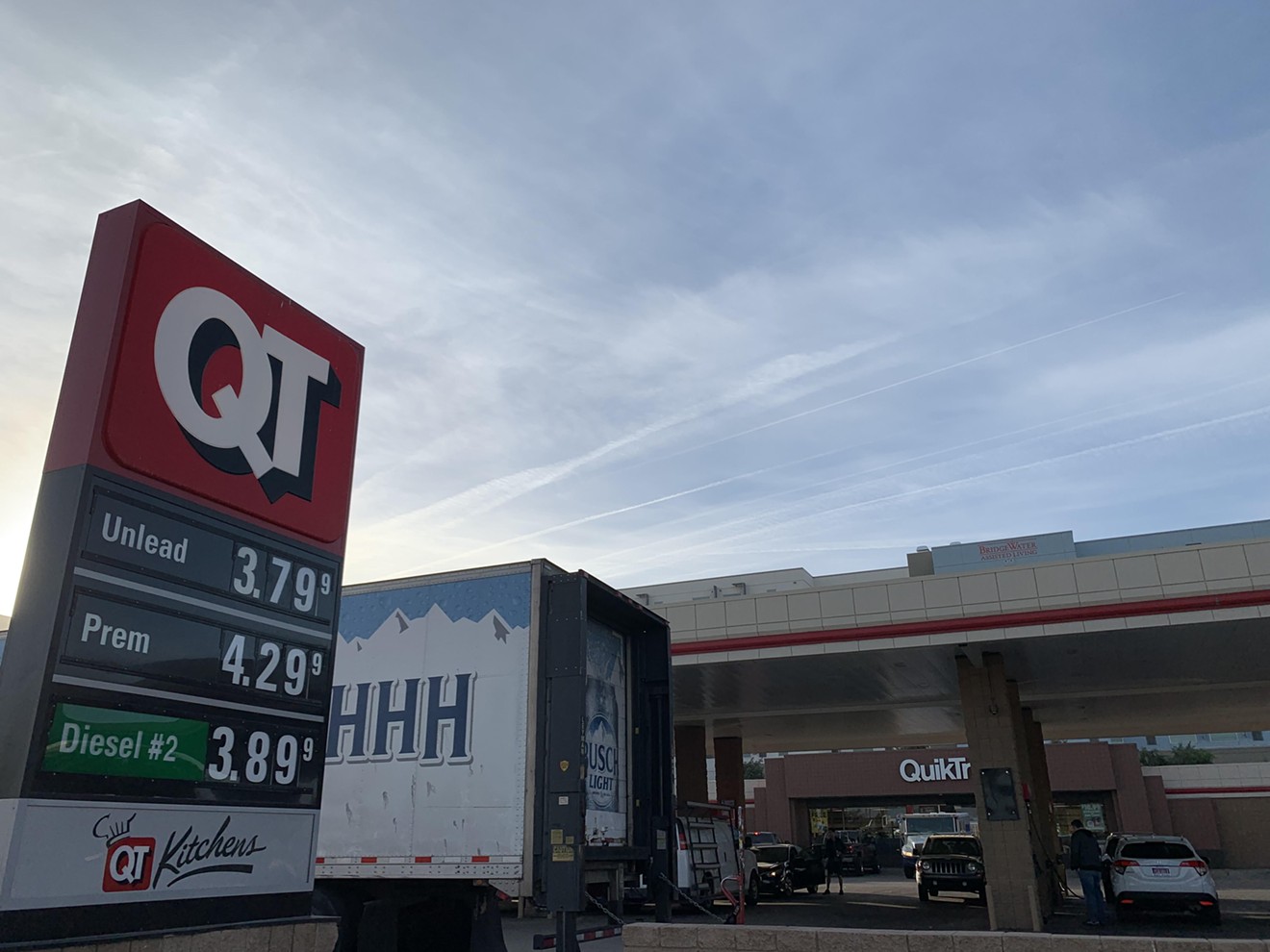Anna Walker's church has been chipping in to pay her rent in Mesa because she can't afford it anymore.
When the 33-year-old first moved into her apartment complex about four years ago, a retrofitted motel built decades prior, she could swing the monthly cost of $500. At the time, the pad near Gilbert Road and Main Street was all she could afford.
"We were on the verge of being homeless and I was recovering from surgery so I pretty much grabbed it," Walker said.
But now her rent for the same tiny one-bedroom apartment she shares with her 6-year-old autistic son has been jacked up to $800 a month. The only items that fit in the bedroom are a toddler-sized bed and a dresser while she sleeps in the living room. Her window has been broken for almost a year after some neighborhood kids threw a rock in it from the nearby trailer park, but the complex has yet to fix it. Leaky pipes patched with duct tape regularly flood her neighbors' downstairs apartments.
"These apartments are not worth $800, they don't even have real ceilings, just office tiles that crumble when they get wet," she said. "There's drug activity and I don't let my son play outside."
Such rent hikes are becoming common and are driving the Valley's inflation, which surpasses the national average.
Walker relies on her son's monthly disability payments of $530 to survive for now and is in the process of trying to get her own disability claim approved by the government.
For about a decade, she worked for the local Goodwill and rented a Mesa apartment for $800 which was bigger than what she has now. It had a playground. She was evicted after a medical emergency led to heart surgery, and her hospital stint racked up debt totaling three months' worth of unpaid rent.
Even working full-time, she barely scraped up enough cash to afford that apartment. She worked for a bit at her church's thrift shop afterward, but that opportunity disappeared during the coronavirus pandemic. Now that she's been unable to work — nor gotten disability — the line between having a place to stay and potentially living on the streets gets thinner every week.
"It's going to get to the point where it's going to be impossible for us to live here," Walker said.
Her goal is to save up enough money for a home so she will only have to pay property taxes and utilities. But her options are few and shrinking. Right now, her church is trying to help her save up for a home. Aid organizations like Habitat for Humanity require a downpayment of around a couple grand, plus a regular income, she said.
"It's just ridiculous how expensive things are right now, I remember when I was a kid a studio apartment was $300," she said.
Walker's plight is all too familiar around town.
The Phoenix metro area is increasingly an expensive place to live. Prices in the region rose 7.1 percent compared to last year, outpacing the national average of 6.2 percent, the U.S. Consumer Price Index for October shows.
The U.S. Bureau of Labor Statistics gathers average prices for goods and services each month, upward of 83,000 prices nationwide, and uses them to make cost-of-living adjustments for federal programs, such as Social Security.
In Phoenix, the price hike was driven by housing and transportation costs. The price of gasoline itself increased by 46.7 percent compared to October 2020.
For businesses that use significant amounts of gasoline, such as landscapers, the price spike has been eating into profits.
"The economy is bad right now," said Joshua Pineda, gesturing to the price at his gas pump which sat at $3.60 per gallon.
The 33-year-old runs a landscaping business and regularly drives his pickup full of lawn care supplies across the Valley. Last year he paid roughly $100 a week on gasoline and now it's upward of $150 each week.
Housing costs increased by 7.3 percent in Phoenix over the past year, compared to 4.5 percent nationwide.
The average monthly rent jumped from $1,473 last September to $1,787 this year, according to the Zillow Observed Rent Index. Five years ago, the average apartment cost about $1,100 each month to rent in Phoenix.
In Mesa, the average rent for a one-bedroom apartment was $1,220 in October, shooting up 24.5 percent in the past year, according to Zumper, an apartment matching website.
"Housing, in particular, is very unaffordable right now and we're not going to see things (prices) collapse," said local economist Jim Rounds, president of Rounds Consulting Group, Inc.
Instead, there will likely be a plateau soon, he said.
One major challenge in Arizona is not just inflation but the low wages which makes it difficult for individuals, who are already behind to keep up, he said.
Individuals such as Anna Walker.
Walker's dream is to go to college for a degree in business and open an animal shelter someday. But it's hard to dream when reality is so bleak, she said.
"I have so many different aspirations but with my financial situation it's almost impossible," she said.
In the meantime, her lease is up in about six months and she's afraid it's just going to get more expensive.
"I'm probably going to have to renew another lease," she said.
[
{
"name": "Air - MediumRectangle - Inline Content - Mobile Display Size",
"component": "18478561",
"insertPoint": "2",
"requiredCountToDisplay": "2"
},{
"name": "Editor Picks",
"component": "16759093",
"insertPoint": "4",
"requiredCountToDisplay": "1"
},{
"name": "Inline Links",
"component": "17980324",
"insertPoint": "8th",
"startingPoint": 8,
"requiredCountToDisplay": "7",
"maxInsertions": 25
},{
"name": "Air - MediumRectangle - Combo - Inline Content",
"component": "16759092",
"insertPoint": "8th",
"startingPoint": 8,
"requiredCountToDisplay": "7",
"maxInsertions": 25
},{
"name": "Inline Links",
"component": "17980324",
"insertPoint": "8th",
"startingPoint": 12,
"requiredCountToDisplay": "11",
"maxInsertions": 24
},{
"name": "Air - Leaderboard Tower - Combo - Inline Content",
"component": "16759094",
"insertPoint": "8th",
"startingPoint": 12,
"requiredCountToDisplay": "11",
"maxInsertions": 24
}
]











